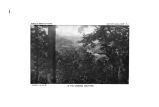| OCR Text |
Show 1 1 8 MYTHS OF THE CHEROKEE [ ETH. AXN. 19 The purpose of this legislation was to render life in their own country intolerable to the Cherokee by depriving them of all legal protection and friendly counsel, and the effect was precisely as x intended. In an eloquent address upon the subject before the House of Representatives the distinguished Edward Everett clearly pointed out the encouragement which it gave to lawless men: " They have but to cross the Cherokee line; they have but to choose the time and the place where the eye of no white man can rest upon them, and they may burn the dwelling, waste the farm, plunder the property, assault the person, murder the children of the Cherokee subject of Georgia, and though hundreds of the tribe may be looking on, there is not one of them that can be permitted to bear witness against the spoiler." 1 Senator Sprague, of Maine, said of the law that it devoted the property of the Cherokee to the cupidity of their neighbors, leaving them exposed to every outrage which lawless persons could inflict, so that even robbery and murder might be committed with impunity at noonday, if not in the presence of whites who would testify against it. 2 The prediction was fulfilled to the letter. Bands of armed men invaded the Cherokee country, forcibly seizing horses and cattle, taking possession of houses from which they had ejected the occupants, and assaulting the owners who dared to make resistance. 8 In one instance, near the present Dahlonega, two white men, who had been hospitably received and entertained at supper by an educated Cherokee citizen of nearly pure white blood, later in the evening, during the temporary absence of the parents, drove out the children and their nurse and deliberately set fire to the house, which was burned to the ground with all its contents. They were pursued and brought to trial, but the case was dismissed by the judge on the ground that no Indian could testify against a white man.* Cherokee miners upon their own ground were arrested, fined, and imprisoned, and their tools and machinery destroyed, while thousands of white intruders were allowed to dig in the same places unmolested. 5 A Cherokee on trial in his own nation for killing another Indian was seized by the state authorities, tried and condemned to death, although, not understanding English, he was unable to speak in his own defense. A United States court forbade the execution, but the judge who had conducted the trial defied the writ, went to the place of execution, and stood beside the sheriff while the Indian was being hanged. 6 i Speech of May 19,1830, Washington; printed by Gales & Seaton, 1830. * 8peech in the Senate of the United States, April 16,1830; Washington, Peter Force, printer, 1830. 8 See Cherokee Memorial to Congress, January 18,1831. 4 Personal information from Prof. Clinton Duncan, of Tahlequah, Cherokee Nation, whose father's house was the one thus burned. 6 Cherokee Memorial to Congress January 18,1831. • Ibid.; see also speech of Edward Everett in House of Representatives February 14,1831; report of the select committee of the senate of Massachusetts upon the Georgia resolutions, Boston, 1831; Greeley, American Conflict, I, p. 106,1864; Abbott, Cherokee Indians in Georgia; Atlanta Constitution, October 27,1889. |































































































































































































































































































































































































































